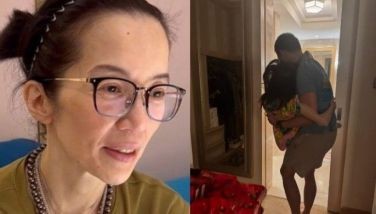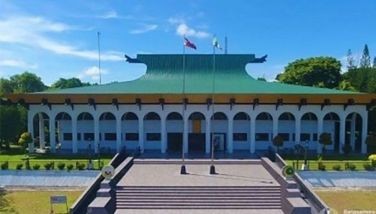A haunting tale straight from the heart
The two major television networks have a docu-drama each. In 2008, GMA 7 launched Case Unclosed with Kara David (who has since moved to hosting OFW Diaries late Friday nights). Arnold Clavio now anchors the show and I reviewed last Tuesday the program’s episode on the pagoda tragedy in Bocaue, Bulacan. It had comprehensive interviews and an impressive reenactment of what happened when tragedy struck and claimed several lives.
For a couple of weeks now (actually every Thursday), ABS-CBN has been airing I Survived with Ces Drilon. I failed to catch its pilot telecast, but I read somewhere that it was about a mining tragedy.
Its second episode I caught and as I write this, I still couldn’t shake it off my head. The story starts during one of the darkest chapters in the history of the modern world, especially here in the Philippines: The outbreak of the Second World War. We then see a Filipino family accused by the Japanese of coddling guerrillas. The father is skinned to death, while in the bedroom the mother is raped by a Japanese soldier. The narrator — then still in her very teens — recounts the incident. Your heart is crushed when she recalls how she saw her mother “already without skirt” being sexually abused by a Japanese.
An older sister who couldn’t stand the sight of her father being tortured comes to his defense with a wooden club, but is killed instantly. After the soldiers make sure both parents are dead, they herd the three remaining daughters to a camp where they are separated from each other.
Every night, the soldiers ravage the women, but the narrator is spared — thanks to an inflamed arm. A Japanese soldier helps her while she recovers, but once she is well, it is this soldier who first assaults her sexually. Life is hell for them in that camp where they aren’t even properly fed. Their daily ration is thin gruel. When the soldier traps some cattle, they have meat, but these are rare occasions.
When the country is finally liberated, she is reunited with one of her sisters (the other one is never found and is presumed dead). Together, they trace their way back to what was left of their home to start life anew.
Recovering from that nightmare isn’t easy, but she tries to move on and start fresh (the one who has a tougher time is her sister, who always sees images of Japanese soldiers approaching her). In time, the narrator meets a man who loves her and accepts her dark past. Her wedding night, however, is a disaster: She feels like she is being raped all over again by the Japanese. But her husband is kind and patient. And you also have to give it to her for her eternal positive attitude in life. Eventually, she and her husband raise a happy family and they are now doting grandparents to several loving grandchildren.
While I am so happy that she found happiness in the end, I still felt like reaching out to her to give her a tight hug — for going through that ordeal and for getting over it. However, we don’t really know what is in her heart.
I’ve heard and read a lot of other horror tales about comfort women — including Lola Rosa Henson’s diary — but this one recently featured in I Survived is the most horrid. Imagine witnessing your father being tortured to death and your mother being raped and later killed — and then you and your sisters being turned into sex slaves.
I grew up on stories about the Japanese Occupation on my grandmother’s lap and that was how I first learned about the horrors of the Second World War. But even if I’ve already ingested countless accounts about the Japanese brutality, I have yet to get jaded. My heart still bleeds for every victim of war here in the Pacific and even those in faraway Europe, particularly the Jews who suffered under Nazi rule.
I feel so lucky that I only went through EDSA I and II, which were both picnics and my biggest fear is still being around when — heaven forbid — another World War erupts (that should be all nuclear).
But some people — like our parents and grandparents — had the misfortune of living through the Japanese Occupation and there are those who still couldn’t shake off the experience. The narrator in I Survived is one of them and you can’t blame her. Even if she was able to rise above that nightmare there are still moments when the chapters come back to haunt her.
I Survived was fortunate to have her as that episode’s narrator. She told her story coherently — and from the heart. It was like everything just happened yesterday.
Apparently, even if the war happened more that 60 years ago, the memories are still painful, especially for those who greatly suffered. Let’s all hope and pray that the Spratley’s issue is settled peacefully among the claimants. As they say, nobody wins in a war. Everyone ends up a victim.
- Latest
- Trending


























 Exclusive
Exclusive






